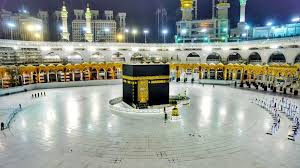KABUL (Pajhwok): Prince Faisal bin Salman bin Abdulaziz, the governor of Madinah Region, inaugurated a symposium on “the Efforts of the Kingdom of Saudi Arabia in Serving Pilgrims, Visitors of Two Holy Mosques during COVID-19 Pandemic,” held by the General Presidency for the Affairs of the Grand Holy Mosque and the Prophet’s Mosque virtually on Tuesday.
At the outset of the symposium, Prince Faisal extended his thanks, appreciation to the Custodian of the Two Holy Mosques King Salman bin Abdulaziz for his approval to hold this symposium, to highlight the efforts of Saudi Arabia in serving visitors of the Two Holy Mosques and Hajj pilgrims during the COVID-19 pandemic.
He added that Saudi Arabia has proved its professional approach in dealing with the pandemic, through the concerted efforts of all governmental, civil, and charitable agencies, in a coordinated and continuous work system, which has achieved very positive results in limiting the spread of the virus and controlling it.
Prince Faisal bin Salman said that in light of the continuation of this pandemic, and the risk of the spread of infection during mass gatherings, and with what the world is witnessing about the existence of new variants from this virus, the Kingdom of Saudi Arabia was keen that the Hajj ritual will be held in an organized environment and in limited numbers to ensure human safety and the performance of rituals in a safe atmosphere.
Grand Mufti of the Kingdom of Saudi Arabia and the Chairman of the Council of Senior Scholars and the General President of Scholarly Research Ifta Sheikh Abdulaziz bin Abdullah Al Al-Sheikh delivered a speech in which he stressed that the leadership of the Kingdom of Saudi Arabia considered the service of pilgrims as an honor and pride for them. They also considered it as an obligation on them towards their Muslims.
Sheikh Abdulaziz bin Abdullah Al Al-Sheikh explained that the Kingdom of Saudi Arabia has placed the safety of pilgrims at the forefront of its concerns, based on its keenness to achieve the interests of Muslims, preserve everything that benefits them and ensure their safety, and keep away everything that harms them.
Al Al-Sheikh added that these efforts also include organizing pilgrims and helping them observe social distancing while performing rituals, moving between the holy sites, equipping an integrated hospital, and allocating specialized medical staff to accompany the pilgrims, follow up their health conditions, and provide them with aid in times of need and necessity, in addition to providing field hospitals and mobile clinics in the holy sites and within Makkah and Medina.
nh








GET IN TOUCH
NEWSLETTER
SUGGEST A STORY
PAJHWOK MOBILE APP